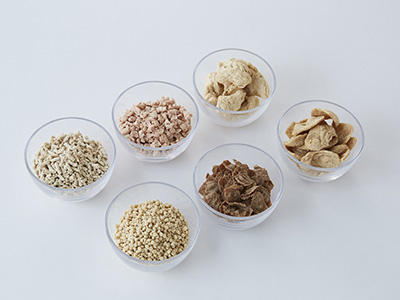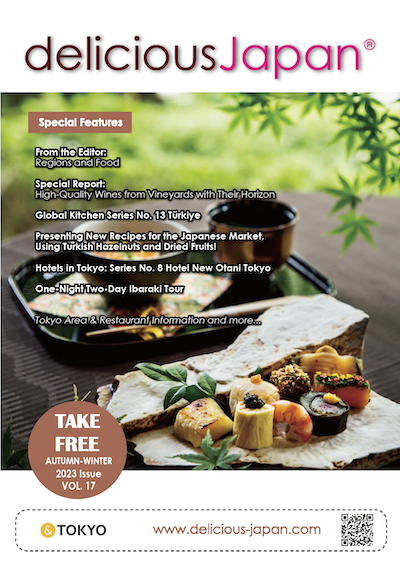
Will 2022 be the True “Year Zero” for Plant-based Food in Japan?
Kiyohito Suzuki, Executive Officer, PBFS Business Division
FUJI OIL HOLDINGS INC.
Fuji Oil Group is driving Japan’s PBF market. In March, 15 companies came together to establish the Plant Based Lifestyle Lab, which aims to realize a sustainable society through plant-based foods. We spoke to Mr. Suzuki, who has a key role in that effort.

Kiyohito Suzuki, FUJI OIL HOLDINGS INC.
I am embedding Plant-Based Food Solutions at the heart of all our operations, as the concept for all Fuji Oil Group business and products. And, I’m using our processing technologies to make us a platform for plant-based protein. My mission, working through these tasks, is to contribute to the modern society that demands food transformation in line with the SDGs.
What has Fuji Oil done for PBF so far, and what results have you achieved?When we were founded in 1950, we began making plant-based oils and soybean protein. At that time, soybeans were mainly used for oil production, and no effective use was made of the protein that was another main component of soybeans. Our founder, Masataro Nishimura, saw that rich source of protein and thought “What a waste. Using it would be good for the world”. In 1961, we began our soybean business by developing defatted soybean meal into a product called “Takara mame” (literally “treasure bean”). In 1966 we completed our soy protein manufacturing process, which includes gel formation, and obtained patents in 10 countries. That led to our establishment of the first soy meat product technology in Japan in 1969.
And that was the start of your soybean business’ rapid progress.In 1973, we set the goal of delivering truly Japanese menu items to ordinary households, and started making soy protein into processed foods. That was the foundation of our plant-based approach. We now have the No.1 share in numerous processed soybean ingredient products, in Japan and in the world.
I’ve heard the phrase “soybeans will save the world” associated with Fuji Oil. How do you see the potential of soybeans?The greatest appeal of soybeans is their sustainability. Soybeans can be cultivated over a broad geographic range, from around 50° North to the tropics, and they are a sustainable food, with good energy efficiency and kind to the environment. Soybeans contain a good balance of protein, carbohydrate, and fat, and are effective in reducing blood cholesterol and preventing obesity. That makes them the most high-profile food, from both the environmental and health aspects.

One survey put the size of the domestic meat substitute market at around JPY700 million, and it is expected to grow to around JPY30 billion by 2030. Compared to overseas markets, that’s far smaller. At Fuji Oil, we want to work together with our existing customers, and a variety of other companies, including startups, distributors, and the food service industry, to expand the market. We will put our manufacturing methods and processing technologies together with other companies’ strengths to carry on our pursuit of great flavors. The foundation of the Plant Based Lifestyle Lab is part of that effort.
On the other hand, how do you plan to differentiate yourself from other players in the market and establish a competitive edge?We constantly emphasize the pursuit of great flavors, on the basis of being plant based. We will present “great-tasting plant-based” from the balance of protein and oils & fats, which maximizes the significance of being plant-based, and from the combination of our key technologies such as emulsification and fermentation. We will leverage that with existing technologies, while incorporating market needs. We see that as our greatest strength.
What is your own vision for the future?My greatest vision is the expansion of plant-based protein. To that end, we are extending our business by expanding our range of plant-based foods with real Japanese character, like the plant-based ramen noodles we jointly developed with Ippudo.





